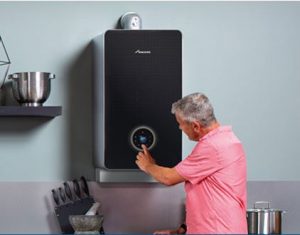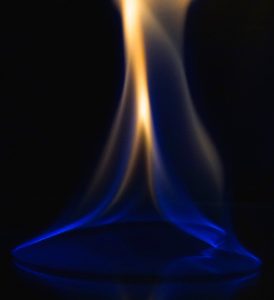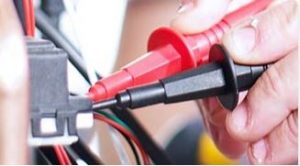A common misconception is that a boiler will reach a certain age and just give up. With the correct maintenance and regular servicing, boilers can last for a long time. Depending on the situation, and particularly if there hasn’t been proper maintenance, sometimes the only option is to replace your boiler with a newer model.

Before you undertake the costly task, it’s important to make sure you do need a new boiler. Any work with boilers and gas work has to be undertaken by a gas safe registered engineer, but there are some initial signs that could indicate you need to get a professional opinion. Read on below to find out the tell-tale signs of a boiler needing to be replaced.
1. Repeated breakdowns
If your boiler is breaking down more than once a year, forcing you to call out a Gas Safe engineer, you should consider if the running costs of getting the engineer out are more or less than the total cost of getting a new boiler.
By regularly servicing your boiler, it should be working smoothly all year. If your boiler is having more issues after the service, then it’s an indication that it’s not functioning correctly.
2. Increasing bills, for no apparent reason

A boiler that is less efficient will have a higher running cost. As the system ages and potentially deteriorates, it might not burn gas as efficiently as it previously did, meaning more has to be used to get the same result as in the past. Furthermore, upgrading from a G-rated to A-rated boiler could save around £200 a year, which is something to bear in mind when evaluating the costs of installing a new unit.
3. Noisy radiators and boiler
It’s easy to get worried at every knock and noise that comes from a central heating system, but most are no issue. However, you should pay attention if there are any new noises or an increase in volume from them.
Certain noises can be fixed relatively easily, for instance tapping noises indicate a build-up within the system that can be remedied with a Powerflush. However, banging, vibrations and humming indicate that there could be a wider issue with your boiler or central heating. Make the engineer aware of these sounds when they come to review the boiler.
4. The gas flame is now yellow, not blue
 The gas light boiler flame should always burn a bright blue. If you can see a noticeable change from this colour to either a yellow or orange, you should book in with a Gas Safe Engineer because it needs a service. The engineer will then be able to assess how much of an issue this is and what they can do to resolve it.
The gas light boiler flame should always burn a bright blue. If you can see a noticeable change from this colour to either a yellow or orange, you should book in with a Gas Safe Engineer because it needs a service. The engineer will then be able to assess how much of an issue this is and what they can do to resolve it.
5. A weird smell comes from the boiler when it’s on
If the smell is gas, or is similar to egg or sulphur then immediately turn off your boiler. There is potential it is a gas leak and you have to call the emergency gas line on 0800 111 999 right away. With this done, you should contact a Gas Safe Engineer. Unfortunately, in this scenario, you might have to replace the boiler entirely.
6. There are leaks from the boiler
The boiler and central heating system should be closed. If there is a leak from the boiler then a part within it could be broken - potentially a valve or seal. Without fixing this problem, it could create further issues such as electrical short circuits and in the case of bad leaks, damage to the structure of your home.
If you discover a leak, turn off the boiler and have it checked over by a professional. With luck, it should be fixed and work properly without having to replace it.
7. It is difficult to get replacement parts

As a boiler ages, production of parts can sometimes decrease or the parts can fall out of circulation. This can make it hard to find replacement parts when a boiler has a fault. Whilst this is not a direct reason to replace your boiler, it is worth bearing in mind. You should research the costs of replacing parts and the frequency that you are having to, if your boiler regularly breaks it could be economical to upgrade to a newer model.
8. Your boiler water yo-yos between hot and cold
A build-up of limescale in your boiler can cause issues with the way it functions. Boiler scale-up is caused by impurities in the water that runs through the system building up over time. If your boiler runs from hot to cold and back to very hot again that is a tell-tale sign that it is scaled up and will probably need replacing.
This article was written by Just Boilers. Just Boilers offer a comprehensive range of services in London, from boiler installation and repairs, to services, landlord gas safety certificates, and swimming pool boiler installations.
